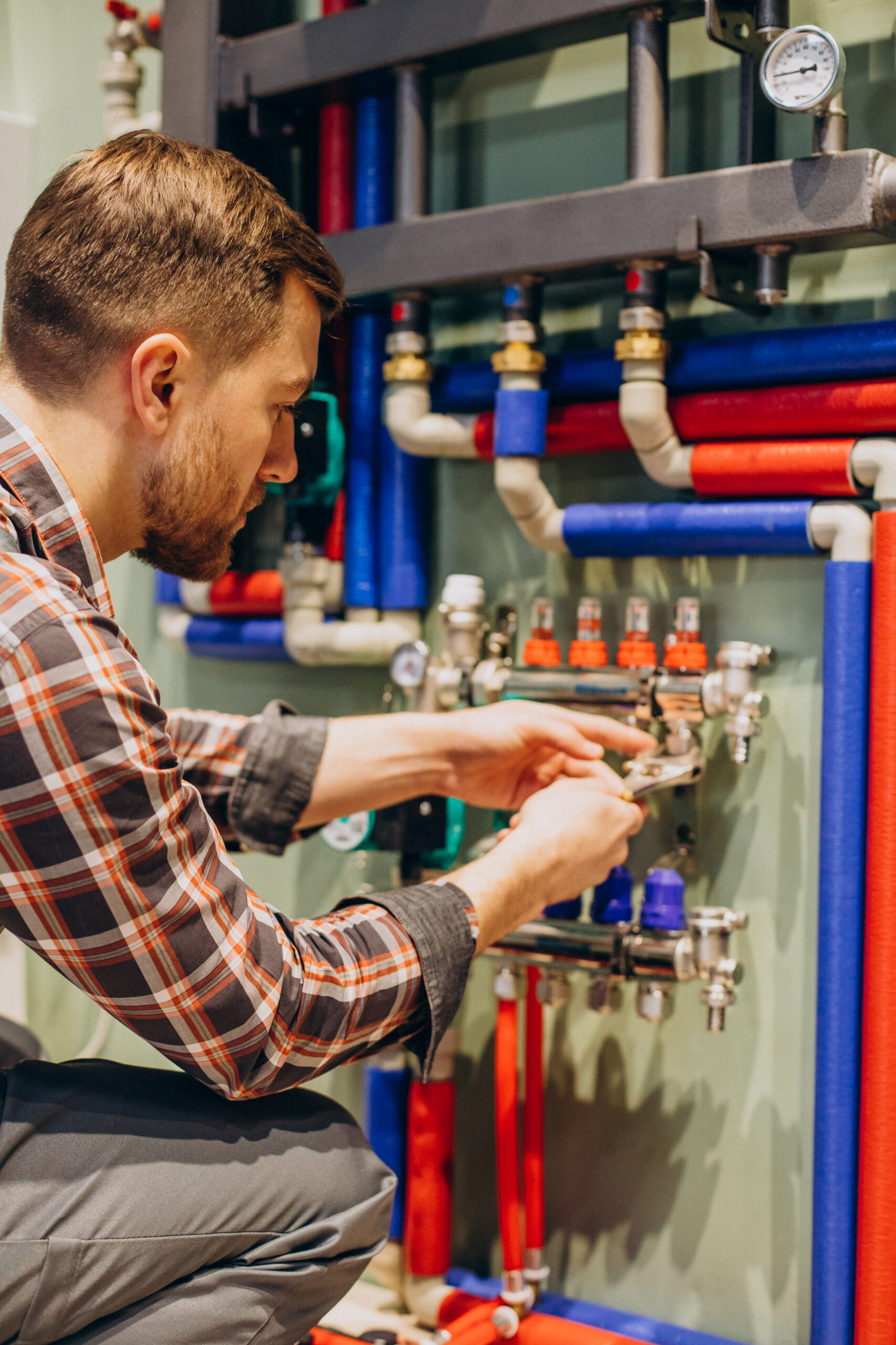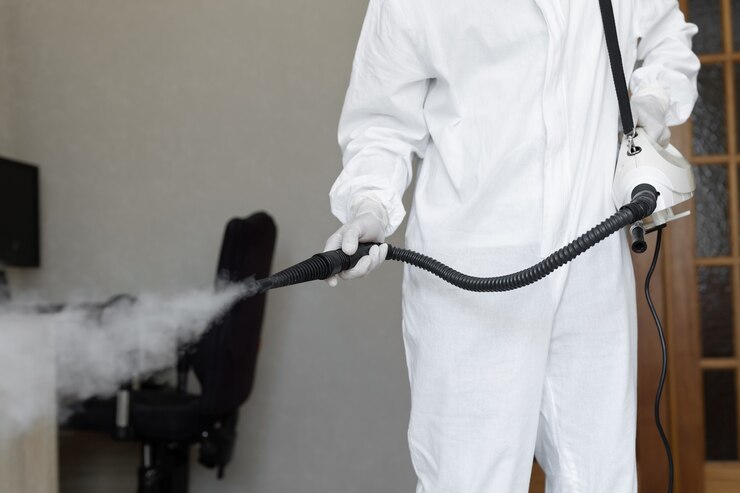How Much Do Plumbers Make?
Understanding the earnings of plumbers is essential for anyone considering a career in this skilled trade or seeking to hire a plumber for services. Plumbers are indispensable professionals in the construction and maintenance of water systems, ensuring that clean water flows in and wastewater flows out of residences and businesses. Their compensation reflects the specialized skills they have acquired through training and experience.
Salaries for plumbers can vary significantly based on factors like geographical location, level of experience, and the demand for plumbing services within a particular market. Alongside their base pay, plumbers may also receive additional compensation through overtime, bonuses, or profit-sharing arrangements, especially during times of high demand or emergency services.
Key Takeaways
- Plumber salaries can be influenced by a range of variables including experience, location, and market demand.
- Additional earnings may come from overtime work, bonuses, and profit-sharing.
- The demand for skilled plumbers makes plumbing a potentially lucrative and stable career choice.
Industry Overview
The plumbing industry is vital to both residential and commercial sectors, seeing steady demand and providing significant employment opportunities.
What Drives Demand for Plumbers?
The demand for plumbers is sustained primarily by the need for the construction and renovation of residential and nonresidential buildings. They are essential in the installation, maintenance, and repair of water, gas, and other piping systems. Economic conditions and ongoing infrastructural developments further influence the need for plumbers, with areas experiencing growth in construction projects typically having higher demand.
How Do Employment Statistics Reflect the Industry’s Health?
Employment statistics from entities such as the U.S. Bureau of Labor Statistics indicate that the industry not only supplies numerous jobs but is also expected to grow. The number of plumbers in the workforce is a testament to the health of the industry. Reliable data suggests that opportunities for plumbers are projected to expand, as their skills remain necessary for a variety of construction-related activities and for maintaining existing systems.
Plumber Salary Fundamentals
When discussing the earnings of plumbers, it’s crucial to understand the median salary figures and the various factors that impact overall compensation. This provides a baseline for expectations and considerations for those in the field or considering plumbing as a career choice.
What is the National Average Salary?
The national average salary for plumbers reflects a broad perspective on what these professionals earn across the United States. As of recent data, the average salary for a plumber stands at approximately $56,216 per year. Breaking it down, the median salary in 2022 noted by U.S. News was $60,090. Moreover, an hourly wage for plumbers is also informative with apprentice plumbers earning between $18 to $25 per hour and journeyman plumbers earning slightly higher.
What Factors Influence Salary?
Salary factors for plumbers vary widely and include:
- Geographical location: For instance, plumbers in California earn an average of $62,681 annually, markedly different from Texas, where the average is $50,917, illustrating how location can influence income.
- Level of expertise: Apprentices typically earn less than more seasoned journeyman or master plumbers, with the latter potentially earning upwards of $70,000 per year.
- Hours worked: Overtime hours can significantly increase a plumber’s earning potential, with an average overtime amount of approximately $6,750 per year.
These elements, among others, shape the earning landscape for plumbers, indicating that salary can differ based on a variety of contributing factors.
Role Specialization and Earnings
Earnings in the plumbing profession are influenced by skill level and the specialization within the trade. These levels include Apprentice, Journeyman, and Master Plumbers, each reflecting various stages of experience and qualification.
Who Are Apprentice Plumbers?
Apprentice plumbers are individuals just starting out in their plumbing careers. As beginners, they work under the supervision of more experienced plumbers to learn the trade. On average, apprentice plumbers earn lower wages than their more seasoned counterparts. A typical starting salary for an apprentice might range from $17.91 to $48.65 per hour as they develop their skills.
What Do Journeyman Plumbers Earn?
After completing their apprenticeship and achieving the necessary certifications, plumbers can become journeymen. Journeyman plumbers have a significant advantage over apprentices in terms of earning potential. This certification allows plumbers to work independently without direct supervision, which often leads to higher wages and the opportunity to take on more complex projects.
How Much Can Master Plumbers Make?
At the top of the profession, Master Plumbers possess advanced certifications and extensive work experience. They have often completed many years of training and can handle the most technical and demanding jobs, with their earnings reflecting this high level of expertise. Master plumbers can command salaries at the upper end of the scale, and potentially earn more than $90,000 per year, which underscores the value that experience and specialization contribute to a plumber’s income potential.
Geographical Salary Variations
The salary for plumbers varies significantly across different states and regions, influenced by the local demand for plumbing services, cost of living, and rate of urbanization.
What Are the Highest Paying States for Plumbers?
In the United States, plumbers’ salaries can be heavily influenced by the state in which they work. For instance, Oregonplumbers receive some of the most generous compensation, with an average salary of $86,677. Similarly, states like Alaska, California, Massachusetts, New Jersey, and Illinois are known for offering higher paychecks that reflect the cost of living and demand for skilled labor in those areas.
How Do Metropolitan vs Rural Salaries Compare?
Plumbers working in metropolitan areas generally earn more than those in rural settings due to higher demand and operating costs. For example, cities such as San Francisco and San Jose exhibit higher average plumber salaries relative to their surrounding rural areas. In contrast, plumbers in states such as Mississippi and West Virginia may find their salaries on the lower end due to less demand and lower costs associated with living in these locations.
Why Must Cost of Living Considerations Be Factored into Plumber Salaries?
The cost of living is a critical factor when evaluating plumber salaries because it directly affects purchasing power. For example, plumbers in New York or California, particularly in cities like San Francisco, command higher salaries due to the elevated costs associated with urban living. On the other hand, states like Utah, North Carolina, and South Dakotahave a lower cost of living, which can reflect in comparatively lower average salaries for plumbers.
Experience and Education Impact
Experience and education significantly influence a plumber’s earning potential. They often start with an apprenticeship and can enhance their income by advancing through various career stages and obtaining certifications.
How Does Starting Out Affect Earnings?
At the beginning of their careers, plumbers typically earn less as they focus on accumulating on-the-job training and might be in an apprenticeship program. Salaries in this stage range from $33,958 to $37,250 annually. Entry-level plumbers can increase their earning power through technical education and industry certifications.
What Is the Impact of Mid-Career Advancement?
A mid-career plumber with several years of experience and developed skills may see a substantial increase in salary. It’s common for mid-career plumbers to earn around $59,880, reflecting their enhanced expertise. At this point, continuous education and specialized certifications can lead to more lucrative and specialized work.
How Do Late-Career Professionals Fare Financially?
Plumbers in the late stage of their career can earn high wages, often due to their extensive experience and potentially running their own business. In the 90th percentile, earnings can reach $99,920 per year. Experience level at this point combines with a deep knowledge base, possibly including multiple certifications and a well-established reputation.
Additional Earning Factors
Plumbers’ incomes can be influenced by several distinct factors beyond their base pay. Understanding the nuances of hourly rates, overtime compensation, and the impact of different certifications can provide deeper insight into a plumber’s earning potential.
What Determines Hourly Rates vs Salary?
Plumbers may be compensated on an hourly basis or with a fixed salary, which can significantly impact their overall earnings. The hourly wages for plumbers vary, with the U.S. Bureau of Labor Statistics reporting hourly rates between $17.91 and $48.65, and an average across the nation of $28.89. Those in specialized roles, such as pipefitting or working in manufacturing, often command higher hourly rates due to the specific skills required.
How Do Overtime and Bonuses Supplement Income?
Overtime is a common factor that can increase a plumber’s wages. They typically work a standard 40-hour week, but may also earn overtime at higher rates. Some plumbers can expect an average overtime amount of $6,750 per year. Bonuses and profit-sharing may further augment their annual income, though these are less predictable and vary by employer.
Why Are Additional Certifications and Skills Beneficial?
Plumbers who invest in additional certifications and skills can often negotiate for better-paid positions. For instance, master plumbers, who have reached the apex of their profession after years of experience and specialized training, may see their earnings exceed the average, with potential to make between $60,000 to $72,300 a year. Further, certifications in areas such as gas fitting or steam fitting denote a plumber’s proficiency in specialized, and oftentimes, more complex tasks, which can lead to higher compensation.
Job Market Trends
In the plumbing industry, significant salary growth and a steady demand for skilled workers mark the current trends. With the industry experiencing a healthier job growth compared to other sectors, understanding these trends becomes crucial.
What Does the Future Job Outlook for Plumbers Look Like?
According to recent industry analysis, the future job outlook for plumbers appears promising, with an anticipated job growth rate of 2% from 2018 to 2028. This translates to approximately 9,100 new jobs emerging within the decade, hinting at a sustained demand for plumbers.
How Are Advancements in the Plumbing Sector Influencing the Job Market?
Advancements in technology and sustainable practices are shaping the plumbing sector. Innovations such as touchless fixtures and more efficient water heaters are creating new opportunities for plumbers who are adept with modern technologies. Additionally, the trend towards green living has increased the need for plumbers skilled in installing and maintaining eco-friendly plumbing systems.
Practical Considerations for Plumbers
When considering a career in plumbing, there are several key factors that influence how plumbers work and how much they earn. These factors include the nature of their work environment, the tools and equipment they require, and the health and safety standards they must adhere to.
What is the Typical Work Environment for Plumbers?
Plumbers often find themselves in a variety of work environments, from residential to commercial settings. They may work indoors, repairing fixtures such as sinks and toilets, or outdoors, addressing issues with sewage and water mains. Their tasks can take them to construction sites, homes under renovation, or businesses experiencing plumbing crises. Due to the physical nature of their job, they may work in tight spaces, at heights, or in various weather conditions.
What Tools and Equipment Do Plumbers Use?
Tools:
- Wrenches
- Pipe cutters
- Plungers
- Plumbing snakes
Equipment:
- Video cameras for inspections
- Welding machines
Technicians rely on a robust set of tools and machinery to carry out their work effectively. The list of tools includes wrenches for tightening and loosening fittings; pliers for gripping; pipe cutters for precise cutting of pipes; plungers and plumbing snakes for clearing blockages. Advanced jobs may require video cameras for pipeline inspections or welding machines for pipe joining, providing evidence of the trend toward increased technology use in the field.
How Do Plumbers Stay Safe and Healthy on the Job?
Plumbers must follow strict health and safety protocols to mitigate the risks associated with their trade. Encounters with gas lines require knowledge of proper handling and potential hazards. They should be familiar with the correct use of Personal Protective Equipment (PPE) such as gloves and goggles to protect against chemical burns or eye injury. Additionally, understanding ergonomic principles to prevent strain from heavy lifting is vital for their long-term health and safety. Regular training on these topics ensures a safer working environment and a reduction in work-related injuries.
Frequently Asked Questions
In this section, readers will find information on the typical earnings for plumbers, variation by experience level, and regional differences in income.
What is the average hourly wage for plumbers?
The average hourly wage for plumbers fluctuates based on several factors. According to data, plumbers make an average of $28.49 per hour.
What is the annual salary range for a plumber?
A plumber’s annual salary can range greatly. Low-end salaries may start at $33,000 for less experienced plumbers, with those in the 75th percentile making up to $108,000 annually.
Are master plumbers compensated at a higher rate than entry-level plumbers?
Master plumbers typically earn higher wages than their entry-level counterparts, with some capable of making over $100,000 a year.
What factors influence a plumber’s earning potential?
A plumber’s earning potential is influenced by their level of experience, certifications, the complexity of their work, and geographic location.
Could you highlight the earnings disparity for plumbers in different states?
Yes, earnings for plumbers vary by state. Factors like the local cost of living and demand for plumbing services contribute to the disparity.
Is the income for plumbers in high demand areas significantly different?
Income for plumbers in high demand areas can be significantly different; these regions often offer higher pay rates to reflect the increased need for plumbing services.






